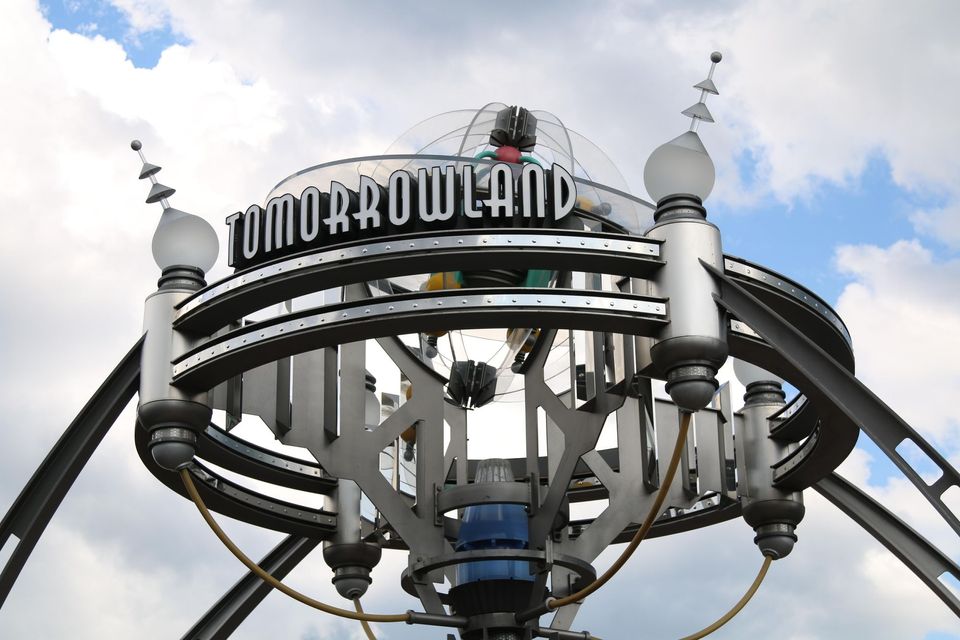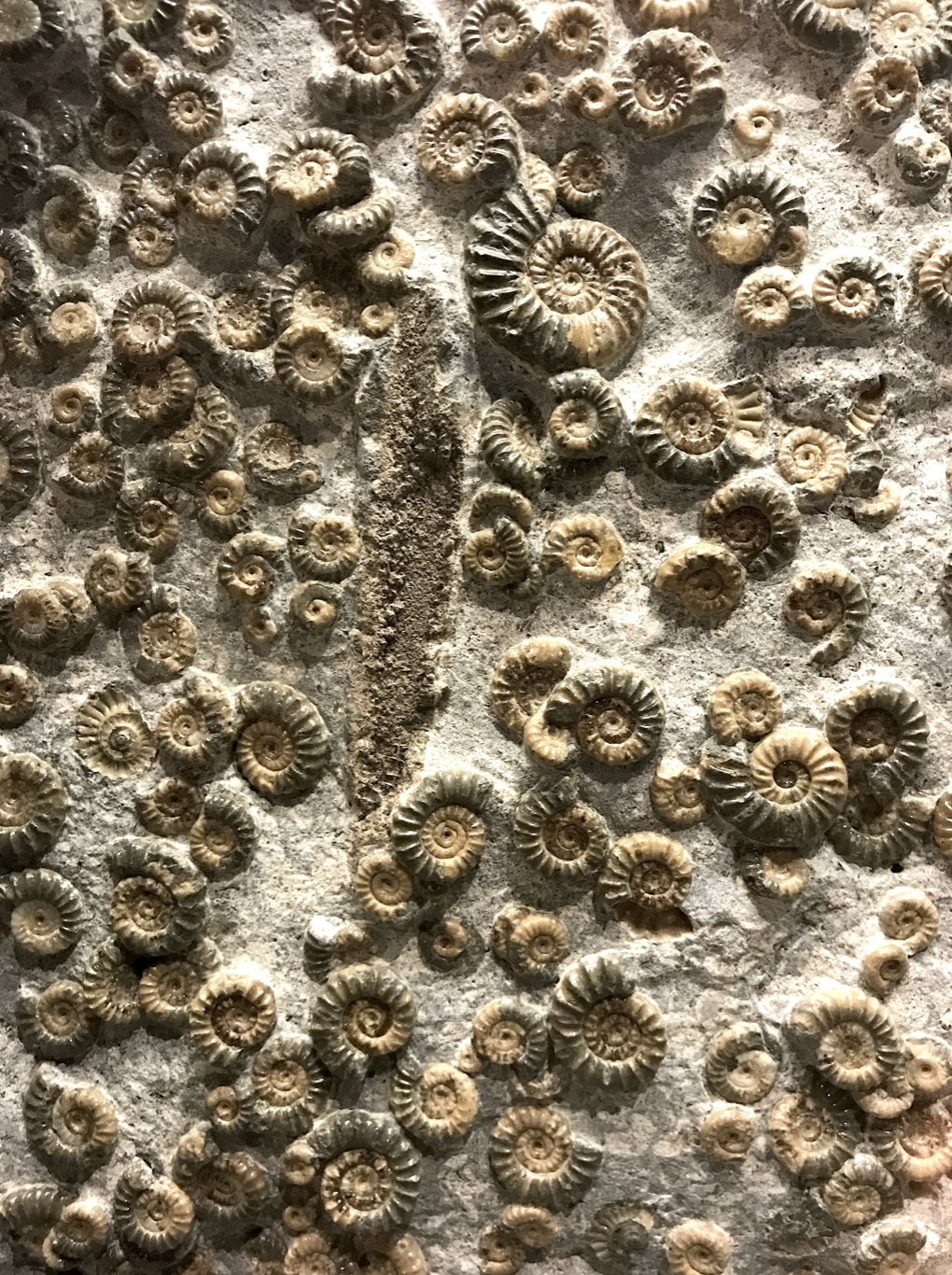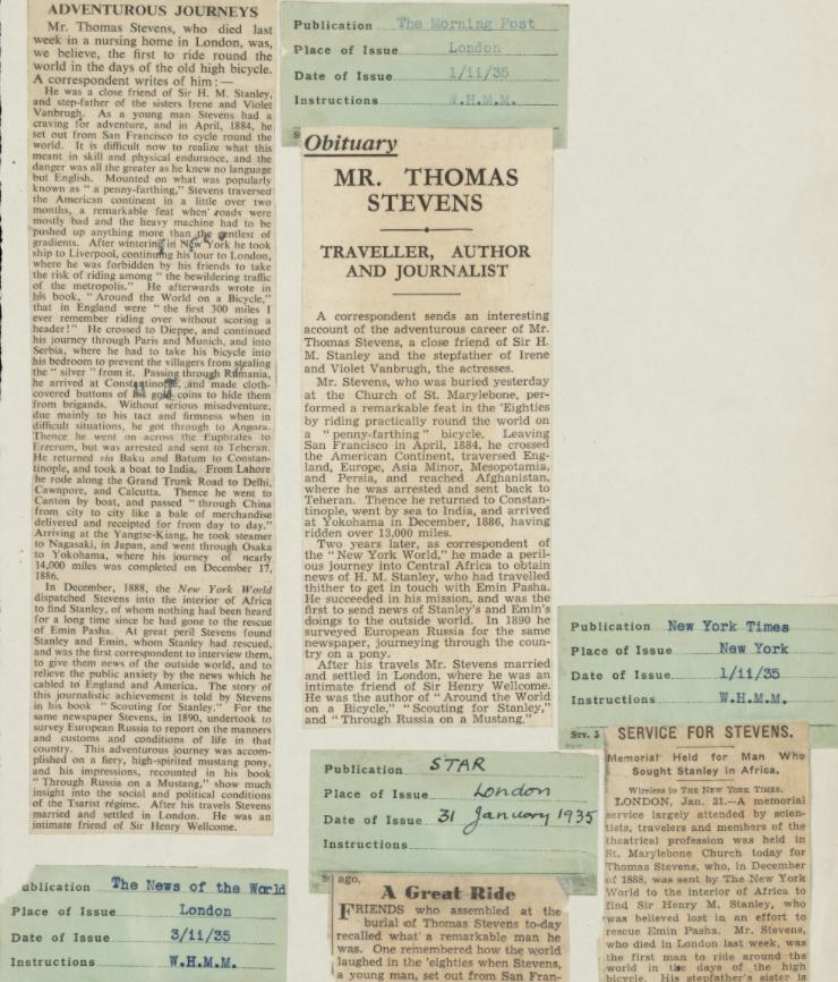“This land doesn’t look like tomorrow.”
That was my six-year-old daughter Mae’s comment when we walked over the bridge into Disney World’s Tomorrowland, with all of its planetary balls attached to sleek metal contoured structures. Synthesized sounds and neon-colored geometric shapes enveloped us as we moved forward, debating our daughters’ readiness for rides with names like Astro Orbiter and Space Mountain. Turns out they were ill-prepared for this future, but before calling it a day, we did take multiple rides on The Peoplemover, a slow, train-like ride from which we could preview all the possibilities available to us in Tomorrowland.
We concluded our time in this land of the future with a familiar meal of cheeseburgers and fries at Cosmic Ray’s Starlight Café, and friends from our grad school years who we bumped into at Disney’s character parade earlier that afternoon joined us. Our collected children chomped down on their food at the table next to us. Their faces were glued to the window as they watched a light show outside transform Cinderella’s castle into a crystal ice palace. We adults poked at our small, crunchy ice cubes in our strong plastic cups with our weak plastic straws, while discussing our futures and making endless jabs at “Tomorrowland,” all varieties of the same basic fact–Tomorrowland is simply one big compilation of sci-fi visions from the sixties.
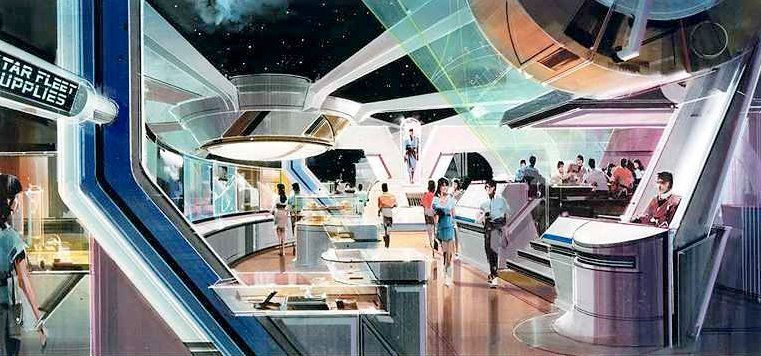
But my daughter Mae didn’t have that arsenal of pop culture references as she absorbed this idea of Tomorrowland. To her, if this land was to be an accurate depiction of tomorrow, it would have to transform into The Wizarding World of Harry Potter, the park we were headed to the next day, which, ironically, looks like 14th century England. But even that idea evolved throughout the day as she wove in and out of “futuristic” structures while aboard The Peoplemover. She realized that her vision of tomorrow was specific only to her and was not the tomorrow of everyone else currently packed into and moving about in this supposedly prophetic land. If it were to accurately be each person’s tomorrow, no experience within this space would be shared in the present, we’d have to pass through each other, all visualizing different things, making today’s land completely obsolete.
A few tomorrows after our trip to Tomorrowland, we were walking through the Charleston City Market in South Carolina. My girls had some Christmas money they wanted to spend. Mae had already purchased a stuffed sea turtle at a gift shop, but my older daughter Olivia wanted to be more selective with her choice. She and I separated from the rest of the family and were making our way through the crowded market at a leisurely pace. We settled into a spot by a vendor’s table where a fellow was demonstrating how to open his collection of wooden puzzle boxes. We played with a few of them, trying to crack their magnetic codes, and then moved on to his wooden fortune telling boxes. Words like “yes,” “no,” “maybe,” and “undecided,” were carved on the top of each box, and above them hovered a pendulum. We took turns asking a question, swinging the pendulum, and then waiting for it to stop, suspended at odd angles above one of the words. Magnets were making this magic.
Olivia, “Will I advance in gymnastics?”
Box, “yes.”
Me, “Will I get more work published this year?”
Box, “maybe.”
Olivia, “Will I get the flu this year?”
Box, “no.”
Me, “Will we stay in Ohio forever?”
Box, “undecided.”
Thanks for nothing, box. Moving on.
More tomorrows have passed, and I now find myself in todayland. The real deal, Ohio. Four inches of snow fell overnight, leaving a beautiful covering outside for me to find when I woke up early and made my way down to this desk in the basement to write more words. For me, this is probably what tomorrowland will look like as well, though I might need to borrow a different word to describe the day-old snow. I might need to steal a term from Ursula K. LeGuin’s 1969 sci-fi novel, Left Hand of Darkness, where the people of Karhid have over sixty-two words for the different types and states of snow. In my tomorrowland this snow will be moved about, tire tracks and boot imprints slightly altering its current pristine state.
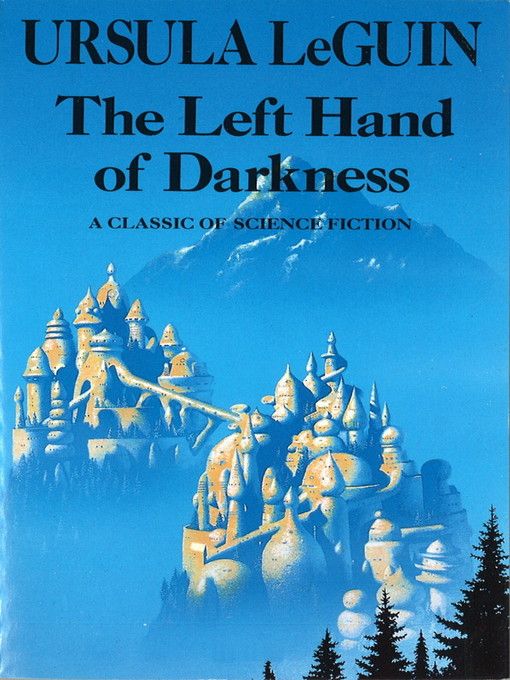
LeGuin’s novel also includes an interesting perspective on the future—one held by a group of people named The Foretellers. These people, who strive to avoid answers, unlearn things, and live in ignorance, have perfected the art of foretelling, their primary motive being, “to exhibit the perfect uselessness of knowing the answer to the wrong question.”
What if we could know what tomorrow was going to look like? What if we did know where we would be in a decade? What if we were given glimpses of our future successes or failures? Would that vision alter the way we’re living our lives today? Aren’t we trying our hardest already? In certain ways I feel my uncertainties keep me sincere, and, though sometimes maddening, there’s a great satisfaction in the day-to-day work of striving.
The lead Foreteller in LeGuin’s book concludes his explanation about the uselessness of foretelling by stating, “The only thing that makes life possible is permanent, intolerable uncertainty: not knowing what comes next.” To me, this line speaks of the future with more accuracy than Walt Disney’s visions of tomorrow or a wooden box with magic magnets.
I hope to witness many more tomorrows, and I hope they contain answers to questions I cannot even know to formulate today. And as an accumulated whole, I hope they far surpass my imagination.

